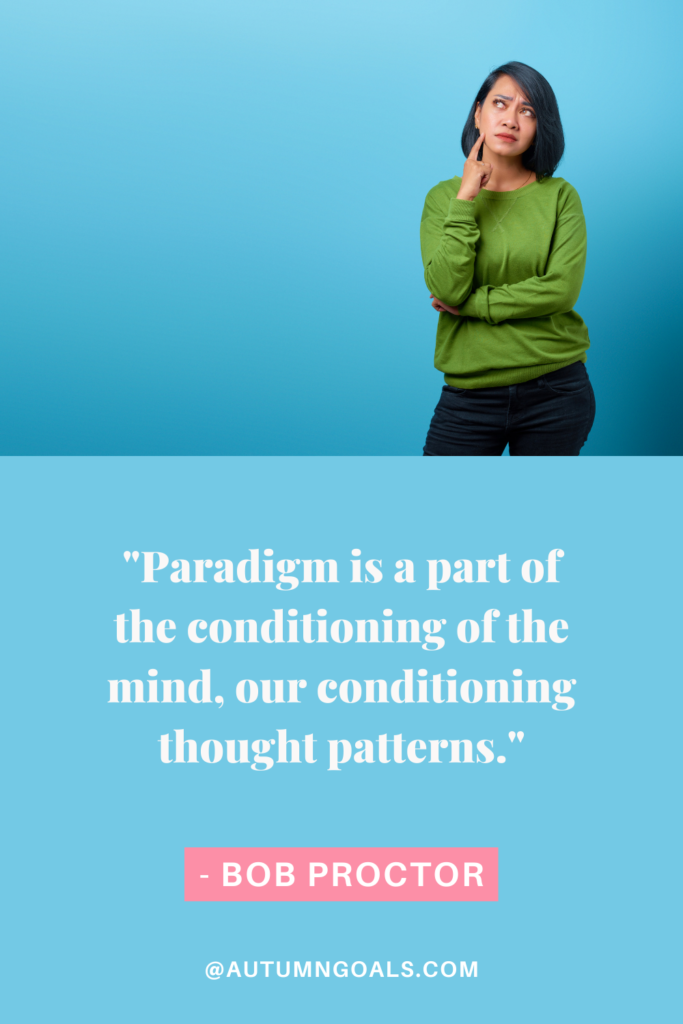
Photo by Jonathan Borba on Unsplash
Personal development is a journey of self-discovery and transformation, a quest to become the best version of oneself. At the heart of this transformative journey lies a concept that has the power to shape our entire lives—paradigms.
Paradigms are like the invisible scripts that govern our thoughts, beliefs, and actions from the moment we are born. They are the lens through which we perceive the world and, more importantly, ourselves. In this blog post, we will delve deep into the world of paradigms from a personal development perspective. We will explore what paradigms are, how they are ingrained in us from birth, their impact on our lives, and most importantly, how we can identify and shift them for personal growth.
What Are Paradigms?
A paradigm, in its simplest form, is a pattern or model that serves as a template for understanding and interpreting reality. It’s the mental map that dictates how we view the world around us. Think of paradigms as the operating system of your mind, governing your beliefs, behaviours, and expectations.

How We Are Programmed from Birth
From the moment we enter this world, we are like sponges, soaking up information and experiences that shape our paradigms. Our parents, family, teachers, and the environment we grow up in play a crucial role in this programming.
Parental Influence
Imagine a child raised in a household where frugality is highly valued. The child observes their parents meticulously budgeting, saving, and avoiding unnecessary expenses. This early exposure to financial habits becomes ingrained in the child’s paradigm, shaping their beliefs about money and influencing their future financial decisions.
Cultural Conditioning
Cultural norms and values also contribute significantly to our paradigms. In some cultures, assertiveness and self-promotion are encouraged, while in others, humility and modesty are valued. These cultural paradigms influence how individuals approach social interactions and career choices.
How Paradigms Affect Our Philosophy in Life
Our paradigms are the foundation of our personal philosophies. They dictate what we believe to be true, possible, or impossible in life.
Fixed vs. Growth Mindset
Someone with a fixed mindset paradigm may believe that intelligence and abilities are static, leading to a fear of failure. In contrast, a person with a growth mindset paradigm sees challenges as opportunities for growth and believes that effort leads to improvement.
Genetic Programming vs. Multi-Generational Paradigms
While genetic programming provides us with inherent traits, paradigms are learned behaviors that can span generations. We inherit paradigms from our ancestors, and unless we consciously work to change them, they persist in our lives.
The Fear of Public Speaking
If your ancestors had a deep-seated fear of public speaking due to past traumas, you might unknowingly inherit this fear. It becomes a multi-generational paradigm that can hinder your ability to communicate effectively.
How Paradigms Shape Our Self-Perception and Worldview
Our paradigms are not just about how we perceive the world; they also significantly impact how we see ourselves. They form the basis for our self-image and self-esteem.
Self-Worth and Success
If you have a paradigm that success is reserved for others and not attainable for you, it will affect your self-worth and limit your efforts to achieve success. Your paradigm may lead to self-sabotage and a cycle of unfulfilled potential.
The Wisdom of Bob Proctor
Renowned motivational speaker Bob Proctor once said, “Paradigm is a part of the conditioning of the mind, our conditioning thought patterns.” Proctor’s words emphasize the critical role of paradigms in shaping our thoughts and behaviours. Let’s delve deeper into how we can identify and shift these paradigms when they no longer serve us.
Identifying and Shifting Limiting Paradigms
Identifying and shifting paradigms is a pivotal step towards personal development. Here’s how you can recognize and transform them:
1. Self-Awareness:
Start by introspecting and becoming aware of your thought patterns, beliefs, and behaviors. Journaling can be a powerful tool for self-reflection.
For example – Suppose you notice a recurring belief that you’re not good enough. This belief is a limiting paradigm that may have been instilled during your childhood. Acknowledging it is the first step towards change.
2. Education and Exposure:
Expand your knowledge and expose yourself to new ideas and perspectives. Read books, attend workshops, and engage with people who challenge your existing paradigms.
For example – If you have a fixed mindset about your abilities, reading Carol Dweck’s book “Mindset” can open your eyes to the concept of growth mindset, challenging your existing paradigm.
3. Visualization and Affirmations:
Visualize the person you want to become and use positive affirmations to reprogram your subconscious mind.
For example – If you want to overcome a fear of public speaking, visualize yourself confidently addressing a crowd while repeating affirmations like “I am a confident and persuasive speaker.”
4. Seek Guidance:
Many personal development coaches and mentors specialize in helping individuals shift their paradigms. Seek their guidance and support on your journey.
For example – John Assaraf’s programs on retraining your brain can provide valuable insights and techniques for paradigm shifts.
5. Consistency and Patience:
Changing paradigms takes time and consistent effort. Be patient with yourself and stay committed to the process.
For example – If you’re working on a paradigm related to self-worth, remind yourself daily of your intrinsic value and keep reinforcing positive self-beliefs.
Embrace Paradigm Shifts for Personal Improvement
In the realm of personal development, understanding and shifting paradigms is like unlocking the secret code to a better life. They are the unseen forces that govern our thoughts, beliefs, and actions. By recognizing the paradigms that no longer serve us and taking proactive steps to shift them, we can break free from self-imposed limitations and achieve personal growth beyond our wildest dreams.
Remember that paradigms are not fixed; they can be transformed. As you embark on this journey of self-discovery and transformation, embrace the power of paradigms, and watch as your life unfolds in ways you never thought possible. It’s time to rewrite your story and create a brighter future—one paradigm shift at a time.

RELATED POSTS
View all



